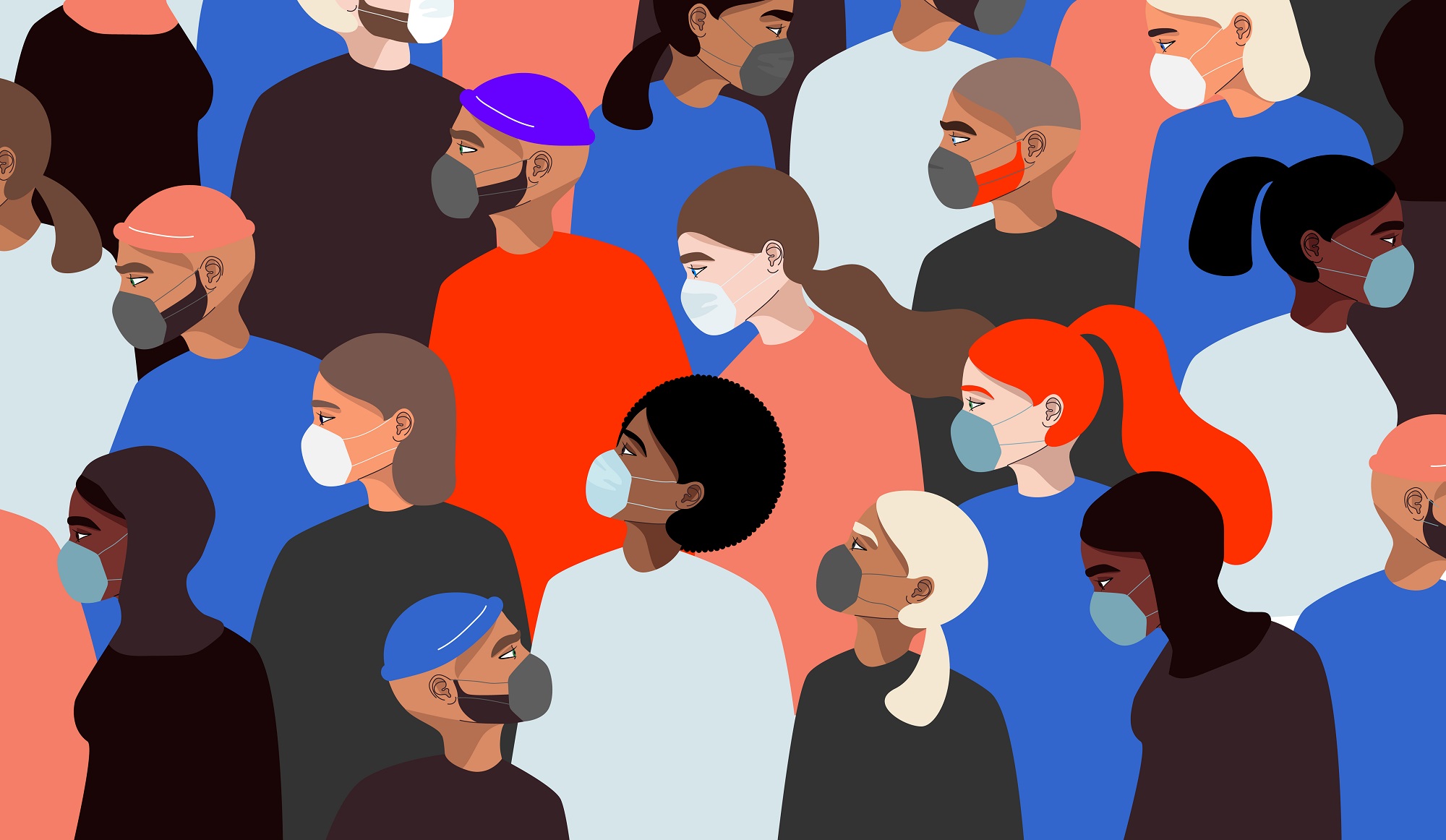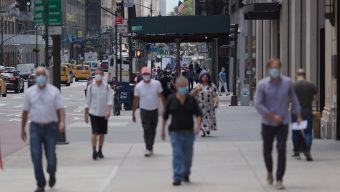William A. Haseltine has devoted his whole life to the fight against viruses. Researcher, professor, entrepreneur, businessman, philanthropist, Chair and President of ACCESS Health International, and a former member of the IE International Advisory Board, he talks with Cristina Manzano about the lessons we can learn from the pandemic.
Cristina Manzano: Are we in the middle of a global rush to start applying the vaccine?
William Haseltine: The global rush for vaccines is understandable and my hesitancy in the past had to do with the clarity of information that was being provided. I’m very pleased now to see the efficacy of the vaccines.
Vaccines are the best treatments we have in medicine, because they prevent you from getting the disease, no matter what you do. For some of the great vaccines, you don’t even need a good health system. You can have an international program that sweeps through the country and vaccinates people. That’s how we eliminated smallpox and almost eliminated polio.
With HIV AIDS, they haven’t worked. We don’t have vaccines for other diseases like malaria or most herpes virus.
CM: And as everybody gets the vaccine, what else can be done?
WH: If you’re going to treat with antiviral drugs, you’ve got to first know the people that are infected. That’s why I have proposed massive free universal self-administered home tests.
The technology existed, and it’s a mystery to me why it hasn’t caught on. If there is one only thing we could do to stop this infection, it’s to make these tests virtually free. You can just dip a little piece of paper in the solution and watch it change. Vaccines are great; drugs are okay. But this test to tell you if you’re contagious… It is an enormous gap in what the world has done to respond to this pandemic.
Another use for drugs is to prevent you from getting infected. It’s taken us about 25 years to get that right for AIDS. Now you can get exposed to HIV through a sexual encounter and if you’ve taken the pills beforehand, the chance you get infected is very low. It could be the same thing with COVID, but it’s going to take us a long time to get there.
There is something we can do right now for healthcare workers: antibodies. They could be protected for two or three months. It is a good thing to do before the vaccines fully kick it. But those drugs are not widely distributed, they’re very expensive and they have to be given by transfusion.
We should develop a whole array of preemptive drugs so that if a new coronavirus comes, we are prepared to stop it in its tracks. We could have done that for SARS, because the pills that were developed for SARS actually work against SARS II, the virus that is causing COVID 19. We could have stockpiled those drugs; also for diseases like the flu which could come back tomorrow in a nastier form. But with the vaccines, the impetus to develop those pills is going to be less.
CM: What other lessons can we learn from this pandemic?
WH: That viruses not only kill people. They kill economies. It’s not surprising that the governments that had SARS and understood that SARS killed economies took rapid action. We in the West didn’t. Hopefully this crisis will get translated into health care reform, preparedness reform, behavior modifications.
Let me give you another lesson. Everybody is being encouraged to wear masks, to wash hands, to stay indoors – and around the world, people do it in a way that’s not uniform. In South America in the last flu season, flu decreased by 98%. The same thing is happening now in the United States. In Asia, they wear masks every winter. Maybe a lesson is let’s wear masks in winter, so we don’t get the flu and can save ourselves a lot of problems. In the United States, there are up to 60,000 unnecessary deaths from flu every year.
CM: Which countries are doing it well from the health policy point of view, if any?
WH: China is. These days, if I say China in the United States, everybody immediately says it is a totalitarian country and you can’t believe a word they say. That’s ridiculous.
If you look at how humanity can confront this disease, China has done it almost perfectly. At the very beginning, local politicians tried to cover it up, but within less than a month they began to behave properly. In January, they locked down Wuhan. Once the central government caught wind of it, they just closed the whole place up and they knew what to do.
When the SARS hit they were unprepared and their economy began to crash. So they went to Harvard School of Public Health and, for the next 15 years, had an exchange program where all their top health leadership spent five to six weeks. They learned the lessons that our Western world was teaching about how to control pandemics. They prepared because they wanted to save their economy and save their people.
This time, within two months, they drove the infection rate to zero. After that, it’s only been exogenous cases. They tested millions of people in those cities where someone got infected and they added new control measures.
While we have more than 200,000 people a day getting infected, 2,500 people dying, they have had nobody dying for months. I say this, in the United States, and get hate mail. For saying things like that in the US, people get threatened.
In Europe, well you’re halfway between the US and China. I was terrified watching France in the early fall. When they finally realized they had to shut down, their infection rate dropped by twentyfold; Spain by three or fourfold. But Europe is forgetting the lessons. France is loosening up for Christmas and just guess what’s going to happen right after. The number of infections are going to go up again.
CM: And what about health systems?
WH: We are sliding into a vaccine disaster akin to our testing disaster. Different countries are going to give the vaccine to different people. Maybe I’m a pessimist, but I see a lot of turbulence over distribution and use of the vaccine, because we don’t have a central policy and we don’t have any troops on the ground. Don’t rely on underfunded, under-resourced, undereducated local Health Policy. Make sure it’s an entire integrated system.
CM: What do you expect from the next US administration?
WH: Our President-elect, Joe Biden, is a very refreshing voice. He tells you the truth. He gives you hope that things will get better eventually and he tells you what to do in the meantime, which is everything you can to protect yourself and your family.
Does he go far enough in my mind? No. But could he go further and not get a violent reaction in the country? That’s a political decision. I’m no politician. I’m a scientist.
A good politician has talents to speak to people in a way that they can understand and absorb the information and then act upon it. There are limits to what you can do in a diverse population such as the United States.
What I would like to see them do, as we’re recommending in the common commission, is reorganize our public health service and integrate our disease intelligence. And I would like to see major research programs to provide stockpiles of drugs for all classes of viruses.
On the international scene, there needs to be routine population surveillance for chronic and infectious diseases.
Let me give you the example of an initiative in Egypt called 100 Million Healthy Lives, in which the Egyptian government, backed by the World Bank, focuses on the elimination of hepatitis C. They created 10,000 local testing sessions and everybody in the whole country 12 and over was tested over a period of eight months. It was very cheap, 50 cents for a blood test. They identified everyone who was actively infected with hepatitis C and everyone who had been cured.
Why can’t we do that for all countries, for all diseases? Had we had a testing infrastructure already in place, we could have done a lot more to contain this epidemic right away. That is needed in every single country and doesn’t exist.
We also need reform of the World Health Organization. The WHO didn’t perform as badly as some say, but it was slow. It was not decisive.
CM: This pandemic has arrived in a very delicate geopolitical moment.
WH: Viruses are intelligent machines trying to crack our biological code, our social code, and our geopolitical code.
We’ve created our own fantastic populated world with seven and a half billion people, that travel like crazy. We’re going to have many more of these viruses. We better get together and understand to use our collective intelligence, our ability to reason, to adapt to this new phenomenon. If we’re not clouded by our nationalistic and our emotional responses, we should be able to respond to what has come and is going to come our way with increasing frequency only because we created a great new ecological niche.
CM: You have also written about the clear link between climate change and new diseases, but there are still many people that deny it.
WH: There are people that deny COVID too, even now. If you can deny COVID, you can deny anything. But it’s not surprising because climate change is slower. Our human species has gone through at least two major ice ages, and hominids have gone through maybe 50 ice ages. If the population shrinks 90%, humanity still goes on, but not as we would like it to do it.
So climate change is real. There’s a big interchange between demography, climate, and disease. As populations moving disturb the environment, the environment changes, so that major diseases appear, like the bubonic plague, endemic probably in the eastern northeastern China region it spread all over the world. Those are the kinds of things that we can look forward to. Climate change is going to be a big determiner. It is another one of those things where you need global governance. All countries have to cooperate because everybody shares the same atmosphere. Not to mention the oceans, which are now filled with microplastics.
The good news is that we have the technologies to make biodegradable plastics. It’s a field I’ve been very active in, which is synthetic biology. I call it constructive biology because you use the power of biology to make things that are environmentally friendly. It may be a little more expensive but this is nothing compared to the disaster that climate change is causing.
CM: Together with COVID-19, we are suffering a misinformation pandemic. How can we tackle it?
WH: That has to do with the nature of political man. People say Trump is not a good politician. He is and there have been many others like him, who understand something about human nature instinctively. They have a different sense of their environment’s psychological map and know how to manipulate it. Consider how a good artist does not just represent through their art but understands the wiring of our brains and has a sense of how to communicate with us based on the innate structuring of how we perceive things. Politicians have the same sense.
This is not such a difficult task for them because we are mostly emotional – our emotions swamp our limited rationality and this determines that which we believe. We decide, emotionally, what is true and then construct a logical argument to support it. There are people who want power and they’ll use their understanding of this to manipulate us. And the only thing you can do is what we’ve tried in the US: build checks and balances. The people that put the Constitution together, they understood human nature.
Only in retrospect will we see just how close we came to a dictatorship, or totalitarian government in the United States. There was effort there, which involved the use and misuse of a lot of information and, unfortunately, that ongoing effort got conflated with the pandemic. Any tool at hand is good when you’re in a battle. You can pick up a crowbar or a sword, whatever is there. It happened that the pandemic was there so it got picked up.
CM: But it may be even more dangerous, since it is not just beliefs, but people’s lives that are at stake.
WH: Twenty million Germans died in World War II, 30 million Russians died. Human life is not the primary concern of power-hungry people. It should be, but it isn’t.
© IE Insights.






